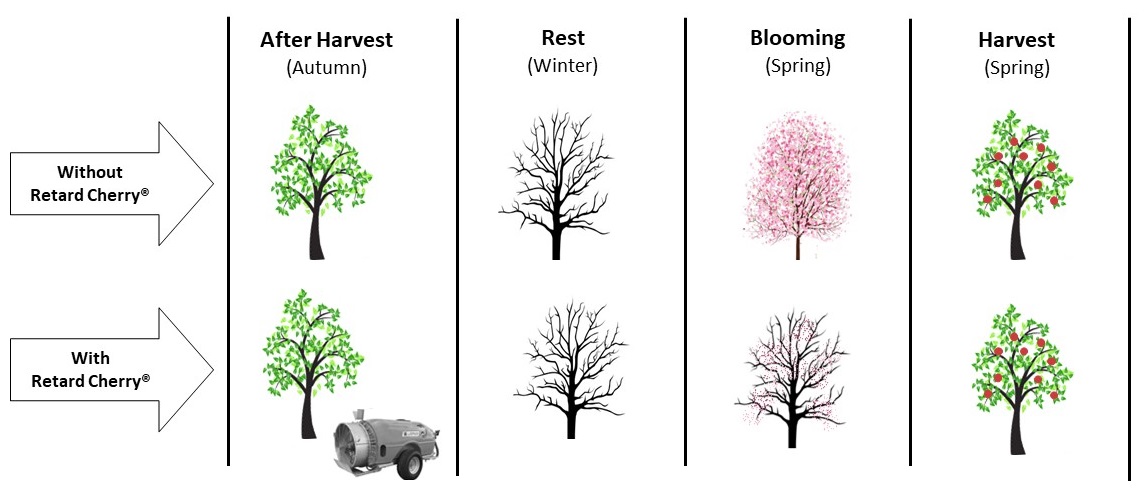Use of the biostimulant Retard Cherry® as a strategy to delay blooming period in sweet cherry trees

Published 2024-01-18
Keywords
- Bloom,
- frost damage,
- fruit set,
- global warming,
- phenology
- Prunus avium L. ...More
How to Cite
Copyright (c) 2023 José Antonio Yuri, Miguel Palma, Álvaro Sepúlveda, Javier Sánchez-Contreras, Mariana Moya

This work is licensed under a Creative Commons Attribution 4.0 International License.
Abstract
Spring frosts are a limiting factor in sweet cherry production in central-southern Chile. Sweet cherry trees cv. ‘Regina’ and ‘Sweetheart’ were studied to evaluate the effect of foliar application of a biostimulant (Retard Cherry®) prior to leaf fall on the bloom delay, fruit set, fruit drop, yield and quality. Data were compared to a non-product control. The study was conducted in the Maule Region, Chile. Results showed that the use of Retard Cherry® delayed full bloom by 6-8 days between cultivars compared to the control; however, there was no delay in the harvest date. The climatic conditions favored high fruit set (37%-49%) and low fruit drop (63%-70%) between cultivars in both treatments. Regarding fruit quality, no differences in size, soluble solids concentration and color were observed with the product, but a decrease in firmness were observed for ‘Regina’. These results show that Retard Cherry® is an effective tool in delaying bloom, providing trees with more favorable climatic conditions for pollination and fruit set.




